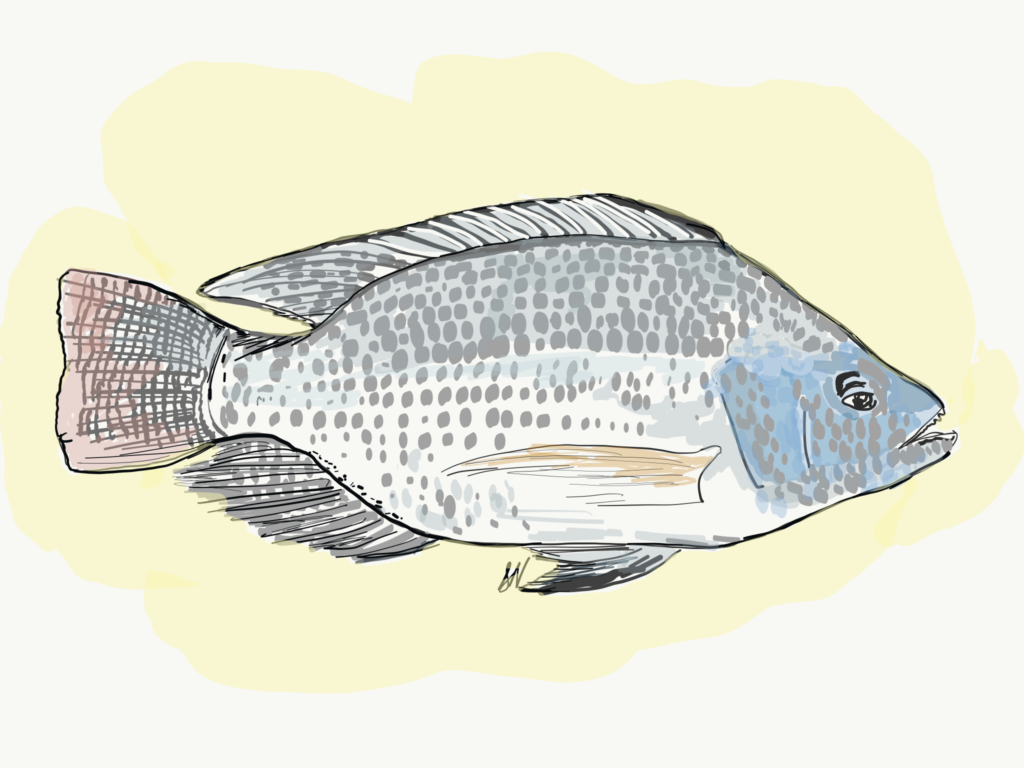It was the beginning of flu season, of mucous lined coughs, drippy noses, tender bones and soggy tissues. A time for me to indulge in relaxing one particular grooming practice, and cover it up by shoving unshaven legs in thick winter stockings.
Prepping for one Sunday morning service, I threw on a heavy green coat, trusting that the buttons across the front would hold their ground. I turned out the pockets to produce an old wadded up tissue and a nice surprise. The left pocket coughed up a 20 dollar note folded neatly in two. Ka-ching!
I will not lie, it gave me quite a thrill—even as a full-grown adult.
But, when you’re a kid that didn’t receive pocket money, scoring a few twenty cent pieces is a pretty big deal. I have the fondest memory of a family friend who artfully jingled all the loose coins in his pockets like Christmas bells, whenever he came for a visit.
He was the size of a barge, with cheeks like pork buns, mirthful eyes and a jolly laugh; he was in a way, our own real life version of Santa Claus. Except ours didn’t come with a beard. And ours was very, very Asian.
By the end of his visit, he’d make sure to do one last thing—empty out his pockets and dump fistfuls of coins into our hands. Oh, how my brother and I danced and spun on our tippy toes.
We felt like millionaires, even though what we had only worked out to be a few bucks each.
I like pockets, and I have great disdain for those articles of clothing that have false pockets sewn into them. I mean, why bother? Years ago, cargo pants were all the rage. I felt liberated from having to lug a handbag all the time. Keys, wallet, lipstick and phone all had a home in my practical cargo pants.
They say that you should never walk down a flight of stairs with your hands in your pockets. I’ll leave you to figure that one out. Remember, you’ve been warned.
Animals designed with pockets
Recently, I was flicking through a copy of National Geographic. In it was a page dedicated to creatures that come with specialised storage. Living here in Australia, it’s not news to us that our marsupials come equipped with pouches to hold their young.
However, did you know that wombats have pouches that open towards the rear? This way, a baby wombat is protected from the hail of dirt when its mother goes digging up burrows.
And the echidna has a temporary pouch formed from contracted abdominals. It’s baby—a puggle hatched from an egg—stays in the pouch until the sharp spines on its body develop.
I wish my abdominal muscles could do that. Need a breath mint? A 2B pencil perhaps, or a nail file? No problem, I merely relax my contracted stomach muscles and hey presto, problem solved.
Another fascinating tidbit involves the specialised pockets on seahorses. The female places her eggs into the male by dropping them in a frontal compartment—a pocket called a brood pouch. Between 14 to 28 days later, he’ll deliver up to 1,500 young.
Pockets may even be located on a creature’s face. Take for instance the chipmunk. It uses its cheeks as grocery bags. A chipmunk can load its cheeks with food until they’ve expanded to almost the size of its body.

If you ever watched any wildlife programs, you’d know that there are some species of fish that use their mouths as pockets.
And if you’re familiar with the gospels, you would have read the miracle about the fish with a coin in its mouth. If you haven’t, check out Matthew 17:24-27.
Should Jesus and his disciples pay temple tax? The half-shekel or didrachma was a payment made by every devout Jew for the upkeep of the temple and its services.
Jesus questions Peter about whether earthly kings collect taxes from their own children or from others. Clearly, “from strangers,” Peter replies.
Then the natural conclusion is that children of the king are free or exempt from paying the tax. Therefore, Jesus, the son of God, had no obligation to pay the temple tax.
However, if Jesus avoided paying the tax, he wouldn’t be identified as a loyal Jew, certainly something he didn’t want to abandon. In paying the tax, he would be showing respect for God’s house.
As a wandering preacher with no regular income, how would Jesus and his disciples pay the annual temple tax?
How did coins end up in the water in the first place?
Some people would throw offerings to God into “holy waters”, though depending on access, any water would do. This practice stemmed from the idea that in giving an offering to God, one should not receive recognition for it.
If you received praise from men then that was your reward on earth. Some wanted to receive their reward from God in the next world.
According to Chaim Bentorah, fish have always been symbolic of God’s provision.
Now, Jesus and his disciples would have been familiar with the Jewish tale about the Pearl of Great Price. In it, a wealthy merchant made his fortune in the pearl trade.
Pearls were considered unclean. One day a prophet tells the merchant that God would give his fortune to a righteous man named Joseph.
For fear of losing all his wealth, the merchant searched the world for a pearl of great price. When he found it, he sold everything he had, so that he could claim this valuable pearl. For safekeeping, the merchant hid the pearl in his turban.
The Talmud explains that the merchant boarded a ship, which eventually was caught up in a storm. The ship sank. Thankfully, the merchant was rescued, but his turban was not. The pearl of great price sank to the bottom of the sea.
Later that week, a righteous man named Joseph purchased a fish. When he opened the fish, he discovered the pearl.
Could Peter have been thinking about this story, a tale that his mother told him as a young lad?

The money miracle
Jesus knew exactly which fish would have the coin in its mouth, and the exact amount needed to pay temple taxes for both Peter and himself.
Jesus also knew the exact timing of Peter casting his line, because it wasn’t going to be the third or the fourth fish that contained the money, but the very first one that would be hooked!
Let’s face it, if Christ could direct entire schools of fish to one side of a boat, and multiply a few loaves a fishes to feed multitudes, finding a coin in the mouth of a fish is just another miracle to remind us all of the omniscience and omnipotence of Jesus, Lord of heaven and earth.
God’s provision
Everything belongs to God, and the supply of earth’s resources are at his disposal. The miracle of the coin in the fish’s mouth must have given Peter and the rest of the disciples reassurance—God would supply all their needs.
We would do well to remember this as we follow and serve Christ. His pockets are always full.
But seek ye first the kingdom of God, and his righteousness; and all these things shall be added unto you. Matt 6:33
But my God shall supply all your need according to his in glory by Christ Jesus. Phil 4:19
Bibliography
Bentorah, C. 2016, ‘Word study—Go Fish’, Chaim Bentorah Biblical Hebrew Studies. Retrieved 29 August 2021 from
WORD STUDY – GO FISH – דוג אזל
Collins, M. 2013, ‘The Miracles of Jesus Christ: The Coin in the Fish’s Mouth’, Church of the Great God. Retrieved 29 August from
Henry, M. 1961, Commentary on the Whole Bible, Zondervan, Michigan.
Keener, C.1993, The IVP Bible Background Commentary New Testament, IVP Academic, Illinois.
Pfeiffer C,F. 1990, The Wycliffe Bible Commentary, Moody Publishers, Illinois.
Poythress, V. 2016, ‘The Coin in the Fish’s Mouth’, Westminster Theological Seminary. Retrieved 29 August 2021 from
The Coin in the Fish’s Mouth
Veridicchio, M.A. 2009, ‘Fish with money in its mouth’, Confidence and Joy, Practical Christian Living. Retrieved 29 August 2021 from
Fish With Money In Its Mouth
Wogan, H. 2021, ‘These Creatures come with specialized storage’, National Geographic, issue no 6, 2021, page 31.



Very Nice Babe
I used to have money, then I had children.
So true.
Hey Miss, another awesome post! I’ve always wished that I could have a pouch to hide some food for whenever im hungry lol. But it’s good to know that even though our pockets arent always, full, God’s always is!
Thanks again Miss!
– Dim : )
You’re funny, Dim. Food pouches. Haha.
Sometimes I feel like a chipmunk when I’ve shoved too much food into my mouth hahaha. Funny post though Miss, I love the way you described your family friend (he was a big a as barge with cheeks like pork buns). That cracked me up!
Thanks Kaelah, I’m glad you enjoyed it.
Enjoyed the read. Very encouraging, thank you 🙂
Thanks, Lydia. May the Lord bless you and your family for all the work you do in His name in Canada.